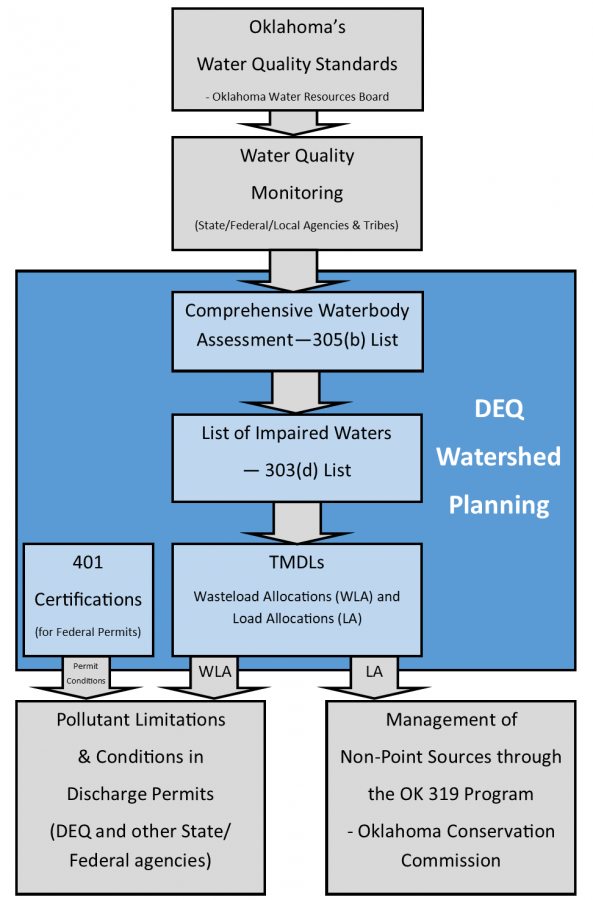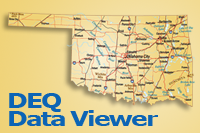Watershed Planning
 The Watershed Planning section at DEQ is tasked with administering programs for standards, assessment, protection, and restoration of surface waters in Oklahoma. The overarching goal of these programs is to ensure that our rivers, streams, and lakes meet Oklahoma’s Water Quality Standards.
The Watershed Planning section at DEQ is tasked with administering programs for standards, assessment, protection, and restoration of surface waters in Oklahoma. The overarching goal of these programs is to ensure that our rivers, streams, and lakes meet Oklahoma’s Water Quality Standards.
Standards
Effective November 1, 2022, DEQ was delegated the responsibility to promulgate Water Quality Standards for the State of Oklahoma. The purpose of the Standards is to promote and protect as many beneficial uses as are attainable and to assure that degradation of existing quality of waters of the State does not occur.
Assessment
DEQ works closely with other state, federal, and local agencies to compile water quality data and apply the appropriate water quality standards to determine the health of the surface waters of the State. The assessment results are provided in the Integrated Report. The Comprehensive Waterbody Assessment contains the assessment of all waterbodies in the State. Waters failing to achieve water quality standards are placed on the 303(d) list of impaired waters.
Protection
The Watershed Planning section provides protection for the State’s healthy waters through the implementation of programs addressing Clean Water Act Sections 208 and 401.
Section 208 requires the states to develop a list of wasteload allocations for municipal and industrial point source dischargers, known as the 208 Plan. A wasteload allocation is the amount of a pollutant allowed to be discharged by a facility while still meeting water quality standards. Water quality modeling is utilized to calculate wasteload allocations that ensure that the receiving water will continue to meet water quality standards. The 208 Plan is updated when a facility’s wasteload allocation is developed or revised and appropriate limits subsequently incorporated in a discharge permit.
Section 401 authorizes DEQ to issue water quality certifications for federal discharge permits. DEQ reviews the federal permits to determine if the requirements of the permit will meet the State’s water quality standards. DEQ can add conditions to the federal permit that will ensure compliance with water quality standards.
Restoration
States are required to develop Total Maximum Daily Load (TMDL) plans to address causes of impairment for waterbodies on the 303(d) list. These restoration plans establish the pollutant reductions needed to bring the waterbody back into compliance with water quality standards. Each point source discharger contributing the pollutant to the waterbody is given a wasteload allocation which will be incorporated into the facility’s discharge permit. Pollutant loads not originating from a discharging facility are considered non-point source pollution. Non-point sources are assigned a load allocation for the pollutant. The Oklahoma Conservation Commission works with land owners to implement best management practices to reduce non-point source pollutant loads.
Standards and criteria to protect water quality in the State of Oklahoma
Biennial report of the water quality status of streams, lakes, and rivers in Oklahoma
A TMDL establishes the amount of a pollutant that can be discharged to an impaired waterbody
Wasteload Allocations for Point Source Dischargers
CWA Section 401 Water Quality Certification for Federal Permits


